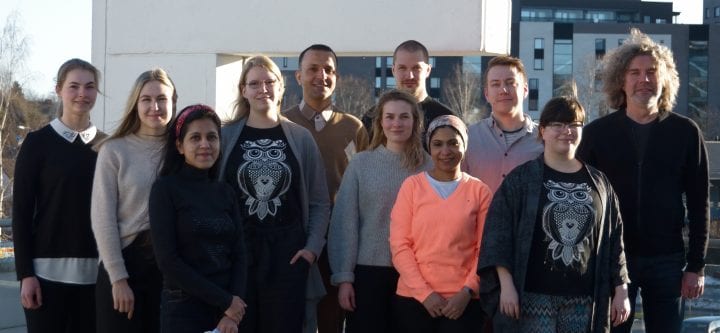People
Harri Härmä, PhD
University Lecturer
harri.harma@utu.fi
Harri Härmä is trained as an Analytical Chemist and is heading the Detection Technology Group. His expertise and research activities relate to luminescence-based methodologies, specific bioaffinity assays, nonspecific assay methods, and nanoparticles and nanoparticle-based high-sensitivity assays in the field of high throughput screening of drug discovery, clinical diagnostics, biomedical research as well as food and environmental analysis.
His competitive advantage lies especially on time-resolved lanthanide luminescence and its novel applications to biochemical and cell-based assay development. In recent years, his research has focused on nonspecific binding and nonspecificity to create unique lanthanide-based detection methods also in the context of and combination with specific bioaffinity assay techniques.
The world is changing along the lines of technologies taking over the conventional methodologies. The cost of development processes is rising and therefore novel solutions are required to meet the demands. New research tools are an essential part of this process. However, this cannot be realized without strong connection to our research and industrial environment with multi disciplinary skills. Our purpose is to create unique solutions to aid e.g. the pharmaceutical industry, diagnostic sector and academic research units to keep cost down with simple, inexpensive and user-friendly techniques by combining knowledge from different fields of expertise.
Kari Kopra, PhD
Academy Research Fellow
khkopr@utu.fi
Kari Kopra has education in the field of Biochemistry, Biotechnology, and Biomedicine. His expertise and research activities relates to luminescence-based bioaffinity assays methodologies in the fields of enzymology, drug discovery, clinical diagnostics, biomedical research, and toxicology.
His is a specialist in the field of luminescent assay technology development especially utilizing lanthanide luminescence and specific bioaffinity reagents. Recently, the main research focus has been on nucleotide related enzyme activity research and development of novel bioaffinity reagents, enabling the development of new and improved assay platforms.
The research has changed to strongly multi-disciplinary and the need for scientific partners, both academic and industry, is ever greater. Assay development is strongly driven by the needs and thus the research must rely on close collaboration – from an idea to a complete technique.
Morteza Malakoutikhah, PhD
Researcher
morteza.malakoutikhah@utu.fi
Morteza Malakoutikhah studied chemistry at the University of Tehran (Iran; BSc 1999) and the Isfahan University of Technology (MSc 2002). He completed his PhD under the supervision of Prof. Ernest Giralt and Dr. Meritxell Teixid at the Institute for Research in Biomedicine (IRB Barcelona) in 2009. His thesis was focused on the search for peptides with the ability to deliver drugs to the brain. He was then a postdoctoral fellow at the Spanish National Research Council
(CSIC, Barcelona) for 15 months. A Marie Curie fellowship enabled him to join the Otto lab at the University of Groningen (The Netherlands), working on dynamic combinatorial chemistry. Afterwards, he worked at the University of Isfahan (Iran). In October 2020 he joined the Detection Technology Group.
Randa Mahran, MSc
PhD student
randa.r.mahran@utu.fi
Negin Gooran, MSc
PhD student
negin.gooran@utu.fi
Group alumni
Salla Valtonen, PhD
Emmiliisa Vuorinen, PhD
Ville Eskonen, PhD
Natalia Tong-Ochoa, PhD
Leena Mattsson, PhD
Sari Pihlasalo, PhD
